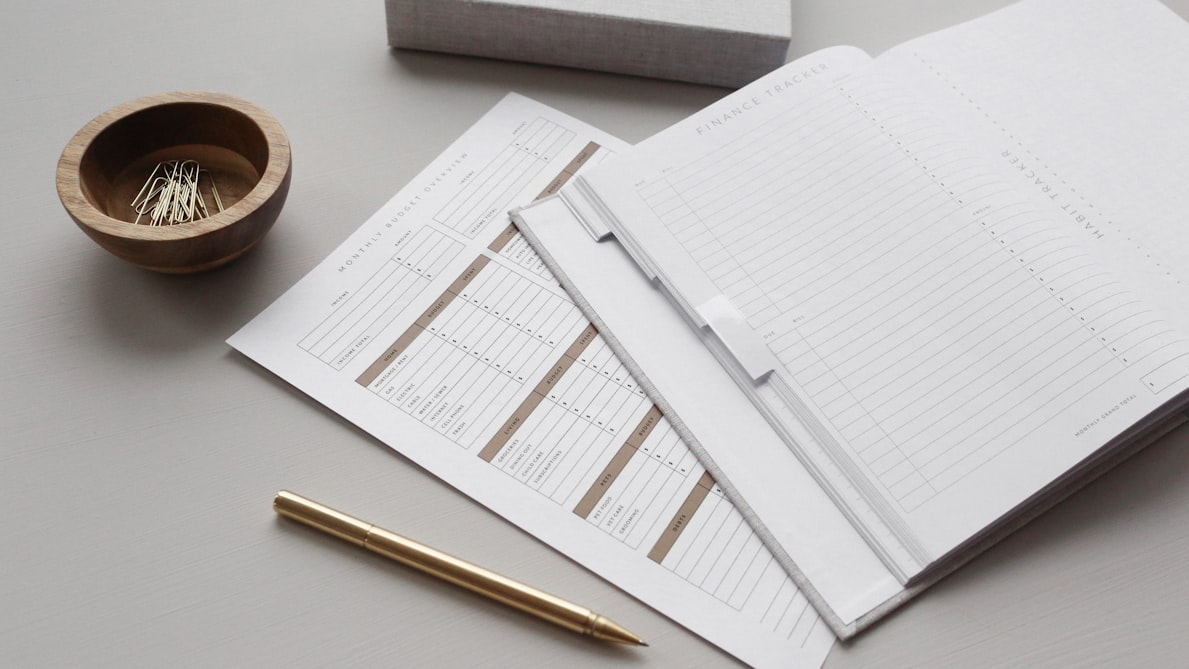I’ve talked about budgeting before and its many uses, but it’s important to also choose the best budgeting style for you. The thing most people think of when they hear “budgeting” is setting strict limits on different categories of spending, and then saving or investing leftovers. If that works effectively for you, congratulations! If it doesn’t, zero-based budgeting is another style you can try.

What Is Zero-Based Budgeting?
With zero-based budgeting, you’re basically making sure that every single dollar you make has a specific function. No, that doesn’t mean you’ll be spending more money, but it means you’ll have a much more detailed focus on what you’re using all of your money for. All of your money will be assigned to mandatory expenses, discretionary spending, savings, investments, and debt repayment. In short, your income minus your expenses (including investments) should always be zero. If that sounds complicated or daunting, then zero-based budgeting may not be for you. If you like the sound of an even more structured approach to budgeting, I’d give it a try.
When you first start out, if you miss the mark and have unassigned cash at the end, put it in savings or investments. Since it is a bit more complex, it may take a while to get just right, but once you have it down it shouldn’t change much. With salary increases, just invest or save more. There should only be major updates to your budget with major life events – and those don’t happen every day, hence the name.
How Does It Compare To Other Budgeting Systems?
Pros
- You know exactly how much is going in and how much is going out – and it keeps you consistent
- Once you’ve figured it out, it doesn’t take a lot of constant tweaking
- It’s great for making the most out of your hard-earned money
Cons
- Building a zero-based budget can be arduous and time-consuming
- Unexpected expenses can cause issues (but that IS what an emergency fund is for)
- Irregular expenses and inconsistent income can make planning more complicated (HINT: for irregular expenses, try saving up for them in a small fund)
How To Make A Zero-Based Budget
Well, if you’ve never made a budget before, it may be wise to check out my other article that is more friendly for beginners. If you have made a budget, then you should know that it is important to know your income, be aware of your expenses (at least over the past two or three months), and categorize your expenses in a way that makes the most sense to you.

1. Calculate Your Exact Monthly Income
It doesn’t really matter how you choose to do this. Figure out your monthly income (or a good approximation if it is irregular) and record it in a spreadsheet, a budgeting app, or good ol’ fashioned pen and paper. To be clear, this includes all cash coming into your household – salary, rental income, royalties, side hustle income, or any other other way you may be bringing cash into your household.
2. Identify Your Monthly Expenses (And Place Them In Their Appropriate Categories)
Again, pick the way you want to record it (with a spreadsheet, for example), and write down a list of your expenses and be as specific as possible with their estimated cost. Start with housing, utilities, food/groceries, and expenses related to your car. That’ll take care of most expenses, but if there are others you think of be sure to include them.
At this stage, you don’t need to set your investments yet, but be sure you include how much you’re saving (e.g. building up your emergency fund). On top of that, include debt payments. You should at least be hitting your minimums, but if there is extra room in your budget you should think about working on eliminating high-interest debt as fast as possible.
3. Identify Your Irregular Expenses
Yes, life has a tendency of surprising us or giving us inconsistent expenses. You can’t plan for everything (hence the need for an emergency fund), but you can plan for the expenses that don’t occur monthly, but still occur on a regular basis. This could be anything from an annual home warranty payment to how much you spend on gifts during the holiday season. Whatever it is, include it in your budget and start saving for it monthly. Be sure you separate and identify what this money is specifically for. Saving for it over many months will make it a much lighter blow when it comes times to actually deal with it.
4. Set Your Investment Goals
I discuss investing in other articles, and identifying your financial goals is a deeply personal matter. Whatever they are, write down how much you NEED to invest to feel secure, and write down how much you WANT to invest. Obviously you want to invest as much as possible, but if you have a tight budget and a plethora of responsibilities, like children, you might not have much wiggle room.
5. Adjust Your Budget So That Your Net Income Is 0 After Expenses And Investments Are Accounted For
The goal of zero-based budgeting is to be left with no unaccounted dollars at the end of the month – they all will have their assignments. Prioritize your investment needs. Make sure you are hitting that as a minimum requirement. Next, include your expenses – both regular and irregular. With your investments and expenses (including extra savings or debt payments) calculated and compared to your income, there are 3 possible outcomes.
Outcome 1
You’re over your budget. This isn’t ideal, but it may be the reality. Do NOT cut back on your minimum saving, investing, and deBt payment needs. Instead, focus on cutting back on other expenses. If that is hard, you’re likely living a lifestyle you can’t afford. Think about focusing on your expenses related to housing, cars, and food. Housing can be outlandishly expensive, as is moving, but you might be able to save a lot of money by downsizing.
With cars, you could potentially save hundreds of dollars per month if you buy a used vehicle and take excellent care of it. Food is the least likely to be at the most outrageous of the three, but a lot of people constantly go out to eat at fancy restaurants on a regular basis. If that sounds like you, and you’re over your budget, you need to cut back.
Outcome 2
Your almost perfectly at your budget. Just about every dollar is accounted for – you’re either slightly over or slightly under. In this scenario, I recommend cutting back on expenses if possible, and dumping more into your investments. Remember, at this point you’re only hitting your minimum investment requirements for financial security – but what about things like early retirement?
Outcome 3
The best outcome, you’re way under the budget! If that is the case, dump more into debt, savings, or investments. At this point, your income is probably pretty great compared to your expenses, and if you keep this up you’ll be in fantastic financial health in a few years (if you aren’t already). Avoid increasing your expenses with your salary though – expenses should only really go up with major life events.
6. Monitor And Tweak As Needed
Since zero-based budgeting is a little more hands-on, it may require some time to get your budget set up perfectly. Monitor it closely for a few months, adjust as you need to, and then get more hands-off as you’re able. Eventually, you should fall into a fairly simple pattern of spending that makes it easy in the long run (despite the initial headaches). Remember, to keep it simple, when you make more money, add it to how much you’re investing each month.
How Does It Still Work With Inconsistent Income?
Zero-based budgeting can still work if your income is a little inconsistent (for example, you’re paid per project instead of hourly, or you’re an entrepreneur). When it comes to planning how much you’ll be making, estimate on the lower end of it. Then, create your budget as normal. After that, consider anything you make over that low estimate a “bonus” for your investments. If you income is too inconsistent and low to meet your mandatory expenses, see if you’re able to supplement your income with a more stable source. If you’re building your own small business, it’s possible you’ll need another income when you’re first starting out.

Is Zero-Based Budgeting For You?
You’re the only one who can make this decision. For some it is too hands-on or detail-oriented, and for others it gives them the structure they need to succeed. Whatever feels the best for you is the right option.
Conclusion
I know for most, this article was a lot to take in at once. That’s okay! Try the type of budget that works best for you, and focus on that. If you have any questions or suggestions related to zero-based budgeting, feel free to comment! For more content like this, and a free budgeting template and financial goals worksheet, be sure to sign up for the Bitter to Richer newsletter.



